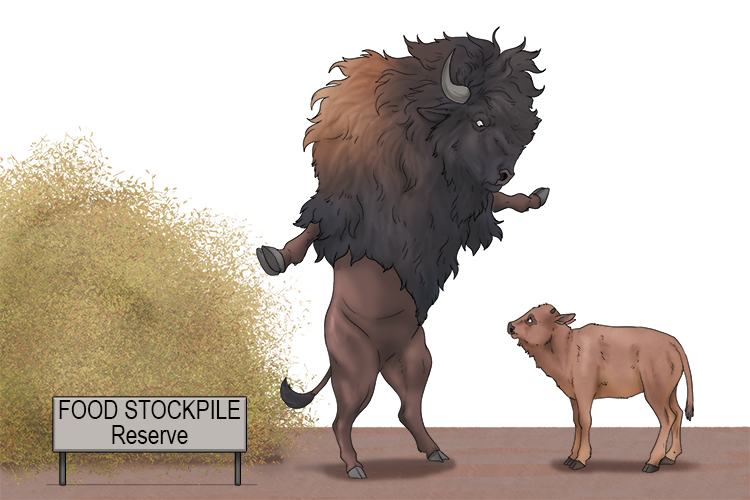Buffer Stock – A stock of raw materials, parts or finished products held in reserve to protect the production process from unforeseen shortages
(Pronounced buh-fuh stok)
To remember what buffer stock means use the following mnemonic:
The buffalo kept extra food stockpiled (buffer stock) and held in reserve in case of unforeseen shortages.

If a business maintains buffer stock, they are more likely to be shielded from financial loss if unexpected issues arise in its supply chain or production process. Companies which do not keep buffer stock may either have reduced production, or might have to buy in the required goods for inflated prices due to increased demand.
Disadvantages to keeping buffer stock include the fact that it must be stored, taking up warehouse space. Also, the money that was spent on buffer stock could have been used in ways that are more beneficial to the company immediately, helping them to grow.
Many companies manufacture products and store the finished goods in a warehouse as a buffer against changes in sales. If there is a short-term lift in sales all the orders can be met. If nobody ever bought the product again this could lead to the buffered stock having to be skipped and sold just for scrap.
Retail outlets have to decide how many of each product to have on display as a buffer against inconsistent buying patterns. If one week milk sells very well but the next week only 20% of the stock is sold, 80% of the product may have to be disposed of.
Note: Just in time manufacturing tries to do away with all buffer stock as a principle.




